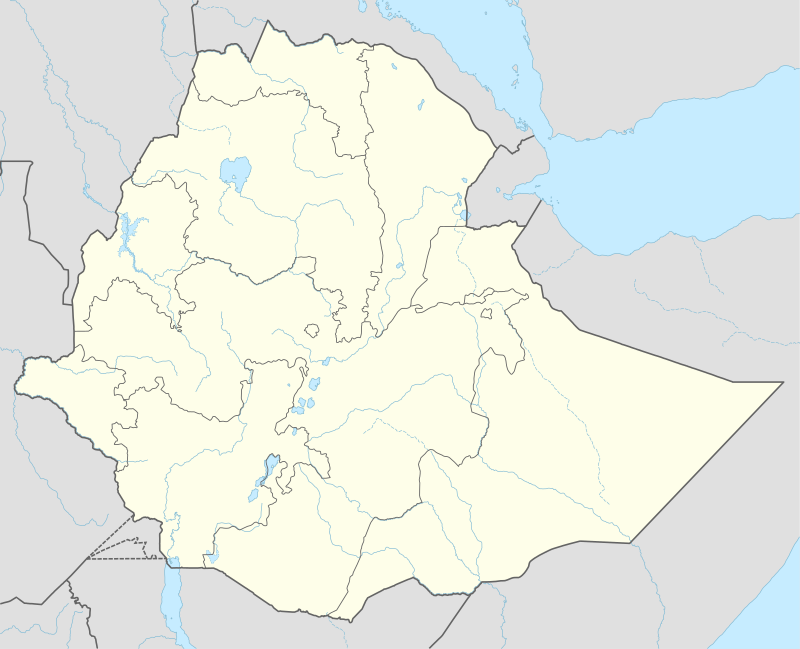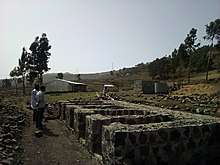Khunale school
Khunale School is a public school for preparatory school and grades 0 through 4 in Khunale, Selam, Dogu’a Tembien, Tigray, Ethiopia.[2]
| Khunale school ኩናለ ቤት ትምህርቲ | |
|---|---|
 | |
| Location | |
 Khunale school | |
Khunale Selam municipality , | |
| Coordinates | 13.6605°N 39.1764°E |
| Information | |
| Type | Public School |
| School district | Dogu’a Tembien |
| Staff | 5 teachers |
| Grades | 0–4th |
| Gender | Co-Educational |
| Number of students | 156 |
| Language | Tigrinya |
| Data pertaining to | 2019[1] |
Description
The Khunale School has 3 roofed class rooms and one open-air class. As of 2018, the school had 138 students, 61 girls and 77 boys.[2][1] There were:
- 35 students in one class in Grade 1
- 27 students in one class in Grade 2
- 36 students in one class in Grade 3
- 40 students in one class in Grade 4
In addition, there were 18 children in preparatory classes (Grade 0)
Water and sanitation
In 2018, water was not available at the school, but there was a spring 10 minutes walk away. There were no specific facilities for girls handling menstrual hygiene;[2] this is a major reason for adolescent girls dropping out from school.[3][4] Up to 2018, there was no toilet building.[2]

In 2019, the School WatSani project has built an Ecosan toilet building at this school.[5][6] Through nudging approach, the students are sensitised for using the sanitation and water facilities.[5]
Transportation
All children travel to school on foot.[2]
See also
- Education in Ethiopia
- List of schools by country
- List of universities and colleges in Ethiopia
References
- Jeroen Berloo, 2019. Updated to baseline study about water and sanitation in eight selected schools by the project ‘School – Watsani’ in the Woreda Dogu’a Tembien. HOWest, Bruges, Belgium.
- Goele Treuttens and Linde Van Der Vurst, 2018. Baseline study about water and sanitation in ten selected schools by the project ‘School – Watsani’ and in the community around the schools in ten different villages in the Woreda Dogu’a Tembien. HOWest, Bruges, Belgium.
- Socio-demographic profile, food insecurity and food-aid based response. In: Geo-trekking in Ethiopia's Tropical Mountains - The Dogu'a Tembien District. SpringerNature. 2019. ISBN 978-3-030-04954-6.
- What do we hear from the farmers in Dogu'a Tembien? [in Tigrinya]. Hagere Selam, Ethiopia. 2016. p. 100.
- Griet Verrewaere, 2019. Report of latrine use and behaviour amongst students - The nudging approach at School-Watsani. HOWest, Bruges, Belgium.
- Reubens, B. and colleagues (2019). Research-Based Development Projects in Dogu'a Tembien. In: Geo-trekking in Ethiopia's Tropical Mountains — The Dogu'a Tembien District. SpringerNature. doi:10.1007/978-3-030-04955-3_30. ISBN 978-3-030-04954-6.